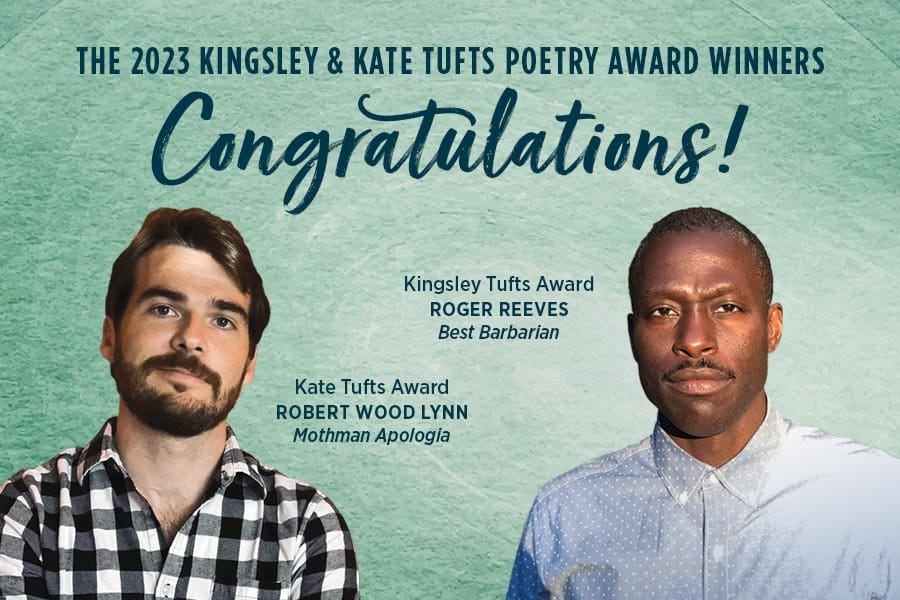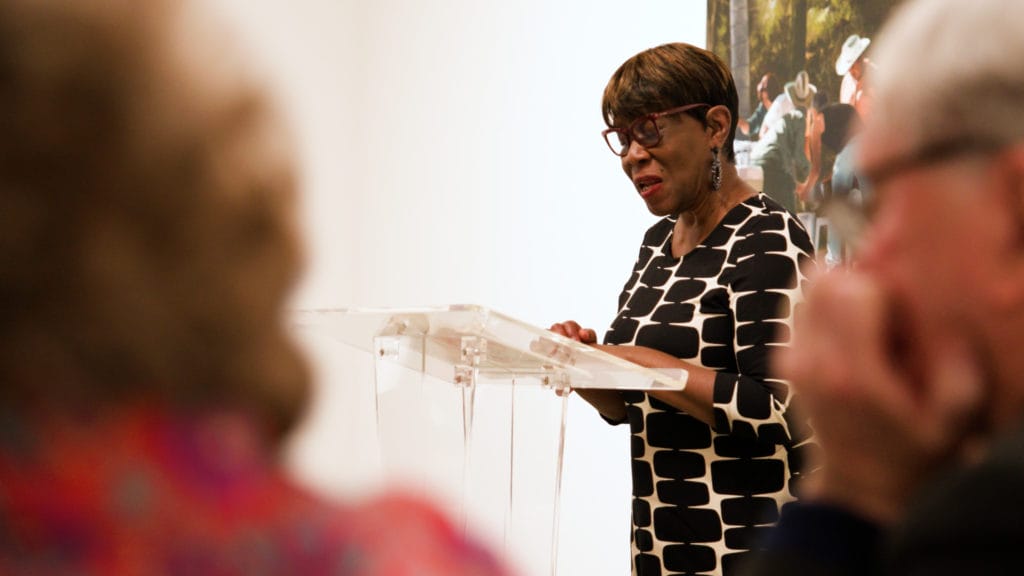Roger Reeves’ ‘Best Barbarian’ named 2023 Kingsley Tufts Poetry Award Winner

The 2023 Kate Tufts Discovery Award recognizes Robert Wood Lynn’s Mothman Apologia
Poetry does what no other medium can: It turns language into art and tackles complexity and emotion without the need for neat and easy conclusions. Faced with the violence of American life and the myths we learn to make sense of it, this year’s Tufts prize winners exemplify why poetry is a medium so deserving of support.
Chosen for their intuitive, lyrical interpretations of reckonings both historical and contemporary, Roger Reeves has been selected for the 2023 Kingsley Tufts Poetry Award for Best Barbarian (W. W. Norton & Company); and Robert Wood Lynn’s debut collection Mothman Apologia (Yale Series of Younger Poets) has been named the 2023 Kate Tufts Discovery Award winner.
The Tufts poetry awards—based at Claremont Graduate University and given for poetry volumes published in the preceding year—come with hefty financial support: $100,000 for the Kingsley Tufts Poetry Award and $10,000 for the Kate Tufts Discovery Award. What makes them distinct, however, is their intent: The Kingsley Tufts award honors a book of poetry by a poet in “mid-career”; the Kate Tufts Discovery Award recognizes a first book by a poet “of unusual promise.” Both prizes, then, are investments in the flourishing future of U.S. poetry and poets.
Reeves and Lynn will read their works to the public at a reception at the Huntington Library in San Marino on April 19, followed by an awards ceremony at CGU on April 20. As part of the Kingsley Tufts award, Reeves will also return to the CGU campus in the fall for a weeklong residency.
Tackling History That Ails Us
The poets received high praise from the judges for tackling issues of poverty, addiction, structural racism, the omissions of the Western canon, and the stories we tell to live.

“Reeves took classical notions of history, literature, and the classics–and made it his own,” said Lynne Thompson, Poet Laureate for the city of Los Angeles and Tufts Award judge. During the call announcing Reeves the Kingsley Tufts Poetry Award winner, Patricia Smith, award-winning poet and chair of the judges, cited the poet’s “discipline, light, darkness” and noted that Best Barbarian “was brutal, it was lyrical, it was everything the moment required, right now. Truth being in short supply these days, Black history not being taught in schools. People look to poets for the truth.”
“It’s a complete honor to have my poetry acknowledged in this way,” Reeves said. “It was amazing to hear from Patricia Smith, who is a poet I’ve respected for years. I take it as a charge to continue to write beautifully and strongly. To make the sound of my voice, the sound of my community, the sound of history on the page. To write the poems we need.“
Describing the Kate Tufts Discovery Award winner’s debut collection, judge Diana Khoi Nguyen called Lynn’s Mothman Apologia “the work of a cool and controlled lyric self,” while Lynne Thompson called it a “cultural document.” After being notified that he had won the prize, Lynn said, “I’m humbled and surprised. I was a fan of all of the finalists and their writing long before being nominated, so frankly, I was honored enough just to be included alongside them.”
Lori Anne Ferrell, director of the awards and dean of CGU’s School of Arts & Humanities, thanked the poets who screened nearly 400 volumes submitted for this year’s awards, as well as the prestigious finals jury of poets.
“It’s no easy task to select the winners from such an array of powerful, unforgettable creative work!” she said. “And yet it is, as always for our screeners and judges, a labor of love.”